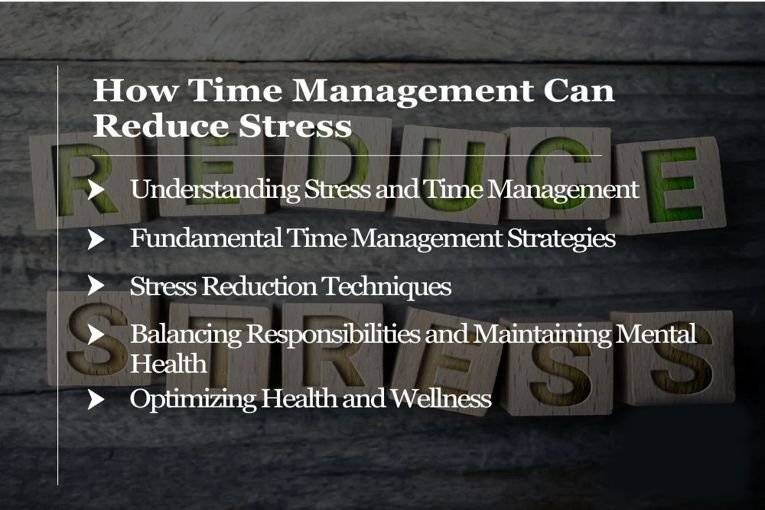Introduction
Time management is a crucial skill that can significantly impact our stress levels. In today’s fast-paced world, it’s easy to feel overwhelmed by the numerous tasks and responsibilities we have to juggle. However, by implementing effective time management techniques, we can reduce stress and increase productivity. In this article, we will explore how to use time management to alleviate stress and improve overall well-being.
Identify Priorities
One of the first steps in effective time management is identifying your priorities. Take some time to reflect on your goals and what tasks are most important to you. By understanding your priorities, you can focus your time and energy on the tasks that will have the most significant impact on your life.
Create a Schedule
Creating a schedule is a fundamental aspect of time management. Take the time to plan out your day, week, or even month, depending on your preferences. By having a clear schedule, you can allocate time for essential tasks and ensure that you are making progress towards your goals.
Set Realistic Goals
Setting realistic goals is essential for effective time management. Break down your tasks into manageable steps and set achievable deadlines. By setting realistic goals, you can avoid feeling overwhelmed and ensure that you are making steady progress.
Avoid Multitasking
While multitasking may seem like a time-saving strategy, it can actually increase stress and reduce productivity. Instead of trying to do multiple tasks at once, focus on one task at a time. By giving your full attention to each task, you can complete them more efficiently and with better quality.
Eliminate Time Wasters
Identify any time-wasting activities in your day-to-day routine and eliminate them. Whether it’s spending too much time on social media, watching TV, or engaging in unproductive conversations, cutting out these time wasters can free up valuable time for more important tasks.
Delegate and Outsource
Don’t be afraid to delegate tasks to others if you have the opportunity. Whether it’s at work or home, delegating tasks can help lighten your workload and free up time for more critical responsibilities. Additionally, consider outsourcing tasks that you don’t have the skills or time to complete effectively.
Take Breaks
Taking regular breaks is essential for maintaining productivity and reducing stress. Allow yourself short breaks throughout the day to rest and recharge. Whether it’s a quick walk outside, a short meditation session, or a coffee break, taking time to relax can help you stay focused and energized.
Practice Mindfulness
Mindfulness is a powerful tool for managing stress and improving focus. By practicing mindfulness techniques such as deep breathing, meditation, or yoga, you can cultivate a sense of calm and clarity. Incorporate mindfulness practices into your daily routine to help manage stress and enhance your overall well-being.
Review and Adjust
Regularly review your schedule and time management strategies to identify what is working well and what needs improvement. Be willing to adjust your approach based on feedback and results. By continuously refining your time management skills, you can optimize your productivity and reduce stress.







